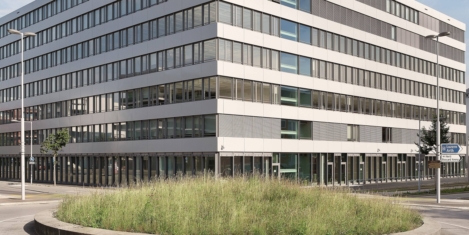December 18, 2018
Government’s new workplace reforms: the world responds
 The UK government has introduced what it claims to be the most significant package of workplace reforms for 20 years in response to last year’s Taylor Report on working practices. The Good Work Plan has introduced a range of measures which the Government claims will improve the rights of agency and part time workers and discourage employers from indulging in unwelcome practices. The reforms are intended to stop businesses opting out of equal pay arrangements for agency employees and improve the conditions for gig economy workers generally, for example by giving workers details of their rights from the first day in a job, such as eligibility for sick leave, pay levels, maternity and paternity leave.
The UK government has introduced what it claims to be the most significant package of workplace reforms for 20 years in response to last year’s Taylor Report on working practices. The Good Work Plan has introduced a range of measures which the Government claims will improve the rights of agency and part time workers and discourage employers from indulging in unwelcome practices. The reforms are intended to stop businesses opting out of equal pay arrangements for agency employees and improve the conditions for gig economy workers generally, for example by giving workers details of their rights from the first day in a job, such as eligibility for sick leave, pay levels, maternity and paternity leave.
























 The vast majority (97 percent) of office workers in UK feel frustrated by their workplace environments, with many feeling the need to escape office life as a result. A new report from Staples has discovered that one-in-five (22 percent) end up browsing LinkedIn job ads for something better when they’re frustrated. As a result, job-hopping is prolific, with workers now predicted to have 11.7 jobs between the ages of 18 and 48. The expectation that the grass must be greener elsewhere is leaving most thinking about switching jobs. However, when they do end up jumping ship, many just experience a short-term fix. According to the study, a third (37 percent) get frustrated in their new office before the end of their first six months. The majority of office workers say they seek fulfilment (89 percent) at work, and for most (77 percent), the quality of their office workspace is a contributing factor in how fulfilled they feel.
The vast majority (97 percent) of office workers in UK feel frustrated by their workplace environments, with many feeling the need to escape office life as a result. A new report from Staples has discovered that one-in-five (22 percent) end up browsing LinkedIn job ads for something better when they’re frustrated. As a result, job-hopping is prolific, with workers now predicted to have 11.7 jobs between the ages of 18 and 48. The expectation that the grass must be greener elsewhere is leaving most thinking about switching jobs. However, when they do end up jumping ship, many just experience a short-term fix. According to the study, a third (37 percent) get frustrated in their new office before the end of their first six months. The majority of office workers say they seek fulfilment (89 percent) at work, and for most (77 percent), the quality of their office workspace is a contributing factor in how fulfilled they feel.










December 3, 2018
Ten UK employment law changes to look out for in 2019
by Alan Price • Comment, Legal news
(more…)